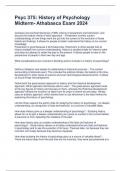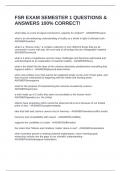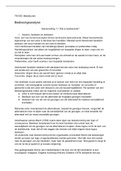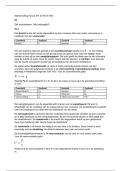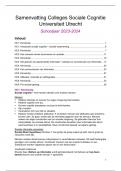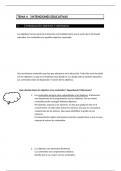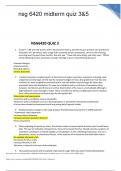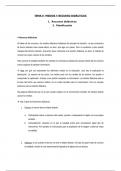Midterm- Athabasca Exam 2024
Compare and contrast Stocking's (1965) notions of presentism and historicism, and
discuss the relative merits of each approach. - Presentism is when current
understandings of how things work are put into the context of the evolution of those
beliefs and findings. It allows for people to better understand the history of our current
knowledge.
Presentism is good because it eliminates bias. Historicism is when people look at
history isolated from current understanding. History is studied simply for history's sake
and does not attempt to relate the past to the present. It allows people to take on the
perspective of people in their own day and age.
What considerations are involved in deciding what to include in a history of psychology?
-
Define a Zeitgeist, and explain its relationship to historical accounts. - The context
surrounding a historical event. This includes the political climate, the beliefs at the time,
development in other areas of science and even technological advancements. It allows
us to put things into perspective.
Define both the great-person approach to history and the historical development
approach. What approach did Henley elect to use? - The great person approach looks
at the key figures of history and focuses on them, whereas the Historical development
approach follows the evolution of ideas from its origin to where we are today. Henley
uses an eclectic approach, which allows them to use whichever is the best method for
explaining the history of psychology.
List the three reasons the author cites for studying the history of psychology - (a) deeper
understanding, (b) recognition of fads and fashions, (c) a source of valuable ideas.
How does History give us a deeper understanding of psychology? - Studying history
allows for us to gain a deeper understanding as it gives us context to the current beliefs.
It prevents us from repeating the mistakes of the past.
How does history give us a better understanding of the fads and fashions of
psychology? - Study history allows us to better understand what are fads and fashions
in psychology and to see the evolution of its focus. Theories fade, not because they are
incorrect, but simply because they become unpopular.
How does studying the history of psychology give us a source of valuable ideas? -
There are many ideas from the past that are not incorrect, they were just presented at a

